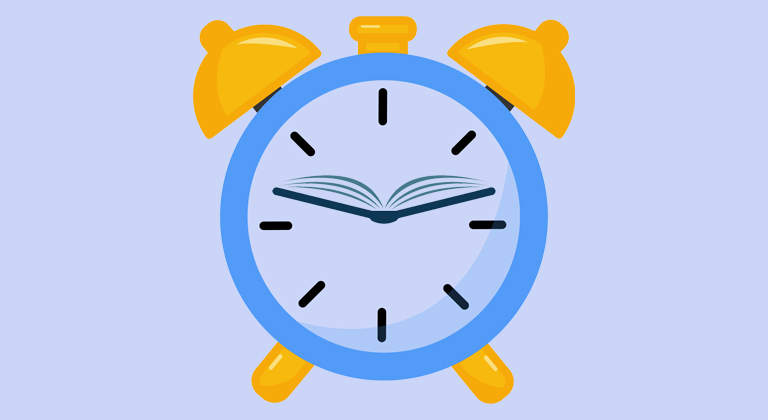Do Shorter Novels Make a Bigger Impact?
Many authors believe there to be an unspoken pressure to produce hefty novels, as if the length of a book is directly tied to its worth. But is there any validity to that assumption? Do readers always want longer novels, or could shorter ones offer equal—or even greater—value to both readers and writers?
As Ginger highlights in today’s blog, modern readers juggle countless demands on their attention and time. Shorter books not only fit seamlessly into their busy lives but also create exciting opportunities for authors, from reaching a broader audience to increasing output while reducing costs. Maybe it’s time to rethink whether bigger truly means better in the world of storytelling.
When it comes to credit card debt, suppositories, and the spiders you find in your bathroom, one thing is clear: Bigger isn’t always better. But does the same rule apply for novels?
Some of my favorite novels are behemoths. I absolutely devoured Stephen King’s The Stand and The Dark Tower books, and whizzed through all of the Harry Potter series (before J.K. Rowling became a pariah.) Likewise, I have so many fantasy novels that my bookshelves are literally creaking beneath their weight. Sometimes, a great book is a really big book.
But not always – and perhaps more than ever, not right now.
In this day and age, it’s not that people have shorter attention spans – it’s that people have less time. Reading a book is a commitment, and when you buy a George R.R. Martin monstrosity, or pick up the latest Jilly Cooper from the local library, it can be intimidating thinking about how you’ll find the time to plough through all 700 pages of it before you reach the end.
That’s why some self-published authors and independent publishers have been talking about the advantages of writing and publishing shorter books these days – one example being Hard Case Crime, which republishes old noir and crime paperbacks that are rarely more than 300 or 400 pages long. Part of the appeal of these books is that you can read them in just a few days – and that is especially valuable if you have friends who read similar books, since it means you get to discuss them together that much quicker!
As I continue to find my own path through the world of self-publishing and writing, I’ve found myself thinking about the length of novels more and more; and today I’m here to make the argument that maybe you should plan on making your book a lot shorter than you’d originally planned.
Bigger = Better?
In the world of self-publishing, authors have unprecedented control over their work. We can write what we want, when we want, and make our books as long as we want. Digital publishing especially has given us the opportunity to have a 12-page eBook for sale right alongside a 600k word saga and the “quality” of each book is determined by how engaging and entertaining they are, not how big they are.
As a result, the question of book length often looms large among self-published authors. Many of us tend to write until our story is finished, no matter how many pages that takes, and there’s often an unspoken assumption that a longer book is automatically better, more substantial, and more marketable than a shorter one.
However, I think this is a misconception. I believe shorter novels can be just as impactful – if not even more so. I think they need to be crafted with a lot more care and intention than longer books, but I also believe a shorter length can sometimes deliver a number of advantages.
The Appeal of Shorter Novels
Throughout the history of popular literature, readers have often preferred shorter novels for several reasons. Just think of the “Dime Store Westerns” that appeared at the end of the 19th century, or the pulp detective novels of the 1940s and 1950s. Shorter books are often more marketable than longer books because they cost less to print, require less commitment to read, and often whet our appetite for the next short novel from the same author. There’s a reason pocket-sized paperbacks are still sold by the millions in airports, train stations, supermarkets, and convenience stores.
In our fast-paced lives today, I think this observation holds more weight than ever. Finding time to read can be a challenge, so shorter novels appeal to people who have always perceived themselves as readers, but enjoy finishing a story quickly without feeling overwhelmed by just how big it is.
Likewise, just as they did in the days before digital publishing came around, shorter books are easier to carry around if you’re a fan of paperbacks. Whether it’s a commute, a vacation, or simply relaxing at home, a slim paperback is more convenient to haul around than a hefty tome, and that makes them very appealing to people who prefer to read the old fashioned way, rather than on a Kindle or eReader.
And while some of the best novels in modern history are long ones, there are countless examples that prove shorter novels can be just as memorable and enjoyable as the “big boys” – sometimes even more so! Take Frankenstein or The Great Gatsby, for example – there is a reason those books are immortal.
Whichever way you look at it, a well-crafted story – regardless of its length – will always leave a lasting impression on its readers.
Examples from Popular Literature
Throughout literary history, there are countless examples of authors who have achieved great success by writing shorter novels.
Ian Fleming’s James Bond series is a prime example. These classic spy thrillers are relatively concise, yet they’ve captured the imaginations of generations of readers for decades. Moonraker, The Man with the Golden Gun, and Goldfinger were all between 150 and 200 pages long – making them the perfect weekend reading material – and yet they still packed a ton of danger, intrigue, and romance between those pages.
Some other notable examples include George Orwell’s Animal Farm, Ray Bradbury’s Fahrenheit 451, and Ernest Hemingway’s The Old Man and the Sea – all books that demonstrate how brevity can be a powerful tool in storytelling.
While not to dismiss the value of longer books, shorter books simply make reading more accessible. For example, The Great Gatsby wouldn’t be on the high school reading list if it was as long as War and Peace.
If you think of writing as a craft, you could think of shorter books as a distinct yet equally valuable example of storytelling designed for a specific purpose – a coffee table as opposed to a dining table, for example – and writing with purpose in mind is always a good tactic for success.
So when you start thinking about writing as having a purpose, you might start wondering if publishing shorter books could be the right direction for your career to take.
The Benefits of Shorter Novels for Authors
Writing shorter novels offers several advantages for authors, and it doesn’t mean they’re of any less quality than longer books.
Firstly, and obviously, shorter books take less time to write. From a commercial perspective, this means that authors who focus on writing shorter books can produce more work in a shorter period, increasing their output and potentially their income. This also benefits fans of that author, since they don’t need to wait quite as long for the next book from their favorite writer. There’s a reason the most prolific romance authors, for example, often publish books that are less than 300 pages long.
Secondly, there are some really significant economic benefits to focusing on writing shorter books, even if they’re published digitally. Editing is perhaps the biggest example of this. Shorter books are generally less expensive to edit, and editing is often one of the biggest expenses a self-published author will have to pay out of pocket prior to publication.
Thirdly, shorter books are much less expensive to print and ship as paperbacks, and that can be huge for those of us who still like to sell physical copies of our books whenever we can. The cost of printing a book is largely determined by its page count, so a shorter book requires less paper, fewer printing resources, and is a lot easier to haul about if we intend to sell them at conventions or book fairs.
You have to remember that you’re not just a writer when you self-publish your books – you’re also running a business. Focusing on writing and publishing shorter books can make your entire writing enterprise a lot more manageable and profitable because there are genuine economic advantages to doing so, and the end result is often more attractive to readers as a result.
The Challenges of Shorter Novels
Okay, so while writing shorter novels offers many benefits to both readers and authors, they also present unique challenges to create.
One of the biggest challenges is the fact that writing shorter novels is often much more difficult than writing a longer one! That might seem counter-intuitive, but if you’ve ever had to write within a specific word count, you’ll probably know how true that is.
As self-published authors, we’ve often become spoiled by the fact that we don’t have to hit specific word counts for our books, like traditionally published authors used to. We can make our books as long as we want – especially if we’re publishing them digitally.
But as I said in the opening paragraph, bigger doesn’t always mean better – and just because we can write books of whatever length we want to, it doesn’t necessarily mean we should.
Writing shorter books often means we need to write better books. We need to squeeze the same story, characters, and events into a more limited page count and that requires a much more disciplined approach to plotting, writing, and editing.
In a shorter novel, every word counts – and as a writer, this means you must be willing to cut all unnecessary material whenever you can to ensure that your story moves at a brisk pace.
As any writer knows, this can be incredibly difficult – especially if we’ve grown attached to certain sections of our work. However, the self-control required to write a shorter novel is a really great skill to learn. Even if we write longer novels in the future, the skills and discipline we teach ourselves by writing to a specific word count can help us become better writers overall – so instead of “bigger is better” I’d argue that “shorter is sweeter” when it comes to fiction.
Conclusion
The moment a self-published author starts to consider things like the length of the novel they’re about to write is the moment they elevate their craft to a different level.
When we start out in self-publishing, we often focus exclusively on writing the books we want to write, and telling them in the way we want to tell them. However, if you want to be successful as a self-published author, you have to quickly learn to focus on what the readers want instead – and often, that’s shorter books.
Making the decision to deliberately write shorter novels can be a highly effective marketing strategy in and of itself. Shorter novels are often more appealing to readers, easier to produce for authors, and can be just as impactful as longer books – or sometimes more so.
Yes, there are challenges involved in writing shorter novels – but the rewards can be substantial. By focusing on quality over quantity, and finding the discipline to approach your craft in a different way, you have the opportunity to create memorable and marketable works of fiction that not only resonate with readers, but also help make your path to self-publishing success easier and more sustainable.
But that being said – I still love reading long books. I’ll often have two on the go at once – a shorter one, like a snack, and a “main course” that might take me as long to plow through as several shorter novels.
Ultimately, it’s up to you how long you want your book to be – but I think writing shorter fiction is something every author should spend some time thinking about.
But do you agree? Do you like to write shorter or longer books? I’d love to know your opinions on the topic, so don’t be shy about letting me know in the comment section below.












the size of the book doesn’t matter. it’s the quality of the writing
This blog came at a really good time for me, so thank you for that. I suppose I’ve been thinking about novel length for some time, and lately, I’ve been reading shorter books as well for the very reasons you outlined. As an editor, I’ve turned down 200K fantasies from authors and suggested they split these tomes in two. (Have they not thought about printing and shipping costs!?) Sometimes, they will surprise you with quality. More often, they need to be divided or severely edited. Anyway. My 60K romance will remain a 60K romance. Again, thanks for this.
There are numerous books I’ve read of late that could use trimming. In saying that, I still enjoy the books as a whole but they could do without the little mundane bits. I do wonder whether it’s the KU factor playing into this. Like some series on Netflix where shows drag on, but one must keep watching for the conclusion. I tend to forward wind the shopping expeditions and baby showers or whatever else the writer/film producer throws in. This is a timely article as I’m shaving my current dom thriller down to 70000 words so I don’t have pay extra for the content edit. Being short of cash will make one do things like that. A short story I published years ago, a former magnet, is now on KU and .99c sells every day and is always in some reader’s hands, so there is something in what you say! Candide by Voltaire was short, as was Of Mice and Men. Both profound works IMHO. Thanks for the great article!
I think there has to be an optimum length for each genre. I write crime and I note that the most popular crime writer ever, with over 2 billion books sold (Agatha Christie) wrote shorter books and even books of short stories, while more contemporary writers do go for length.
However, it is quite a skill to write a short crime novel. You have world building, character development and the plot itself to consider plus a satisfying ending where the reader does not feel cheated.
I am aiming to be Christie like in length but I sometimes read them again down the line and wish I had added a little more detail, and a few more clues to deepen the plot. I don’t yet have her ability.
It is all about practice and in that case shorter and more is indeed better as you get more times to try out your skill: there are only so many hours in the day and editing longer books is, inevitably, slower.
This post makes me feel better! I’ve always been considered a “lean” writer. My clean romance titles are all around the 55,000 mark. I’ve set out to make them longer at times, worrying they’re too short, but it never seems to work. Thanks for the reassurance that shorter is okay 🙂
With shorter novels, you get more bites on the apple for hooking readers via good covers and blurbs. Of course that entails additional costs. You also get a real chance to try rapid releases and get Amazon to push you forward. Thank you for this article and your excellent series on direct sales.